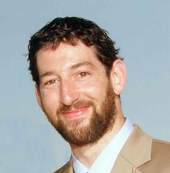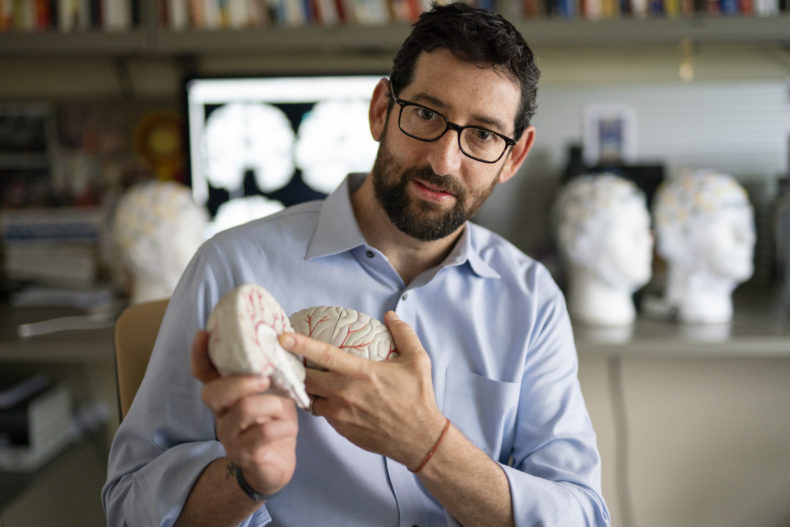David Vago, Ph.D., will join the Osher Center for Integrative Medicine in the Department of Physical Medicine and Rehabilitation on Sept. 1 as director of research.

He comes to Vanderbilt University Medical Center from Boston, where he is an associate psychologist at Brigham and Women’s Hospital and an instructor at Harvard Medical School. Vago, whose research includes better defining brain activity related to mindfulness, is assembling a team to continue his work at Vanderbilt.
“In the last decade there has been an explosion of research in integrative medicine,” Vago said. “The numbers have been so dramatic that you can’t ignore that there is a clear evidence-based case now for the effectiveness of many of these integrative medicine techniques, especially meditation and yoga. When you see these clinical changes, you wonder what’s going on in the brain and body and how it is all communicating.”
Vago and colleagues launched the “Mapping the Meditative Mind” research initiative, which he will be bringing to the Osher Center.
“That initiative is about identifying those specific neural substrates and neuromechanisms by which meditation is changing the brain,” he said. “I am investigating practitioners from across the whole spectrum of meditative experience, from novice to expert.”
The research also entails a focus on innovation and technology like real-time neurofeedback that can provide participants with real-time data on mental states, information they can use to potentially improve meditation or reduce clinical symptoms like pain.
“We know that specific meditation techniques can enhance brain functioning in particular in areas in which there are deficits associated with poorly managed stress, symptoms of anxiety or depression,” he said. “There is hard science on this that has been emerging in the past decade. At this point, there is still a lot of research to be done, of course. We are slowly approaching a level of precision in our theoretical and mechanistic account of mindfulness and mental training.”
Vago received his Ph.D. in Cognitive and Neural Sciences with a specialization in learning and memory from the department of psychology, University of Utah in 2005. He completed post-doctoral work at Weill Cornell Medical College and Harvard Medical School.
VUMC is home to one of five designated Osher Centers. The others are at Harvard, University of California at San Francisco, Northwestern and Karolinska Institutet (Sweden).
Treatments and services offered at the VUMC Osher Center include massage therapy, acupuncture, mind/body counseling, mindfulness training, physical therapy, tai chi, health coaching and yoga.
The therapies help people with health issues ranging from cancer to chronic pain. Vago and his team plan to conduct the research necessary to optimize the beneficial effects of these approaches alone or in combination with other more traditional therapies.














